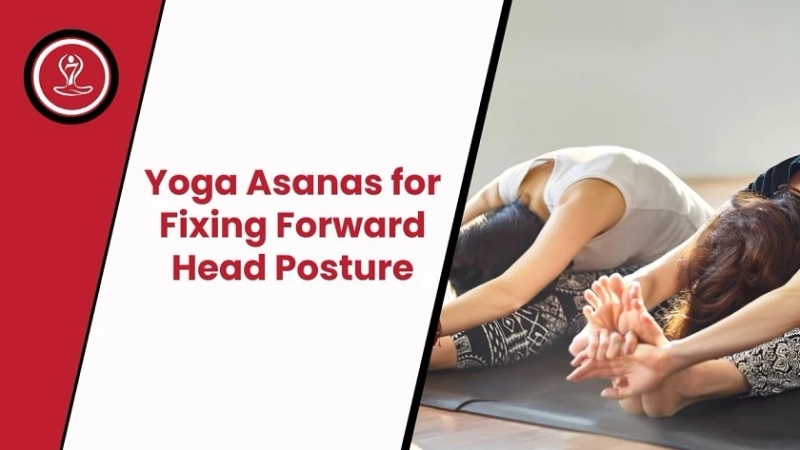Forward head posture (FHP), also known as "text neck" “scholar’s neck” or "nerd\'s neck," is a common postural issue in which the head is positioned with the ears in front of the body\'s vertical midline. In a neutral or normal head posture, the ears should ideally align with the shoulders and the vertical midline of the body.
Forward head posture (FHP) can lead to a range of side effects and is often associated with other postural problems, such as rounded shoulders (kyphosis).
Several factors can contribute to the development of forward head posture, including:
- Neck pain and stiffness
- Muscle imbalances
- Shoulder pain and tension
- Poor ergonomics
- Headaches
- Reduced lung capacity and breathing difficulties
- Increased risk of musculoskeletal disorders
- Altered spinal alignment
- Injury or trauma
- Sedentary lifestyle
Yoga can be an excellent way to alleviate pain and discomfort associated with forward head posture (FHP) and text neck. Regular yoga practice can help improve posture, strengthen supporting muscles, and increase flexibility in the neck and upper back.
A combination of stretching and strengthening exercises, along with improved yoga asana, can help relieve the side effects of FHP and restore better posture.
Yoga Asana For Fixing Forward Head Posture
Here are some simple exercises that you can do at home to strengthen and stretch the muscles around the neck, back, and shoulders, which can be effective in improving forward head posture:
Chin Tucks
- Stand with a straight spine.
- Gently tuck your chin toward your chest, creating a double chin.
- Hold for a few seconds, then release.
- Repeat this exercise 10-15 times to strengthen the neck muscles and promote proper neck alignment.
Neck Retractions
- Sit in a neutral position.
- Slowly push your head straight back, as if trying to make it touch the wall behind you.
- Hold for a few seconds, then return to the neutral position.
Seated Twist
- Sit cross-legged or in a chair with your back straight.
- Place your right hand on your left knee and gently twist your upper body to the left.
- Hold for 20-30 seconds, then switch to the other side.
Supported Bridge Pose
- Lie on your back with your knees bent and feet hip-width apart.
- Lift your hips off the ground, placing a block or cushion under your sacrum for support.
- Relax your arms by your sides and hold for 30 seconds to 1 minute.
Cat-Cow Stretch
- Start on your hands and knees in a tabletop position.
- Inhale, arch your back, and lift your head (Cow Pose).
- Exhale, round your back, and tuck your chin (Cat Pose).
- Repeat this flow for several breaths.
Child\'s Pose
- Kneel on the floor with your big toes touching and knees apart.
- Sit back on your heels and extend your arms forward with your forehead resting on the ground.
- Hold for 30 seconds to 1 minute while focusing on deep breaths.
Puppy Pose
- From a tabletop position, walk your hands forward while lowering your chest toward the floor.
- Keep your hips over your knees and your arms extended.
- Relax your forehead on the mat and hold for 30 seconds to 1 minute.
Conclusion
Forward head posture (FHP) has become increasingly common in recent years, largely due to the widespread use of smartphones, tablets, computers, and other electronic devices.
Practice the above yoga for body stretches regularly to improve your posture and alleviate pain caused by forward head posture.




